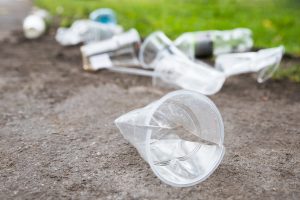
Nearly 200 nations commit to developing a legally binding plastics pollution agreement
Canadian Plastics
Canadian Plastics Environment RecyclingThe United Nation's top environmental body has agreed to move forward on a global plastics pollution treaty.

Photo Credit: Adobe Stock/DimaBerlin
In a move that could have major repercussions on how plastics are regulated and used around the world, representatives from 175 United Nation countries have endorsed a resolution at the UN Environment Assembly, the UN’s top environmental body, to end plastic pollution.
The resolution, based on three initial draft resolutions from various nations, establishes an Intergovernmental Negotiating Committee (INC), which will begin its work in 2022, with the goal of completing a global, legally binding agreement by the end of 2024.
The UN Environment Programme (UNEP) will convene a forum by the end of 2022 that’s open to all stakeholders in conjunction with the first session of the INC, to share knowledge and best practices in different parts of the world.
“This is the most significant environmental multilateral deal since the Paris accord,” said Inger Andersen, executive director of UNEP. “It is an insurance policy for this generation and future ones, so they may live with plastic and not be doomed by it.”
UNEP also said that it will “work with any willing government and business across the value chain” to shift away from single-use plastics, as well as “to mobilize private finance and remove barriers to investments in research and in a new circular economy.”
The program has drawn praise from some plastics groups. The International Council of Chemical Associations, which includes the American Chemistry Council, said in a statement that it was pleased with the outcome of the UNEA meeting and “fully supports a legally binding agreement on plastic pollution.” It said it appreciated governments for “highlighting the significant role plastics play in society.”
And closer to home, the Ottawa-based Chemistry Industry Association of Canada (CIAC) said it was pleased to support the program, and commended Canada’s federal government for its role as co-facilitator of the proposal, along with Ghana. “CIAC recognizes the need for global action to prevent leakage of plastic into the environment and achieve universal access to waste collection,” said CIAC president and CEO Bob Masterson.
